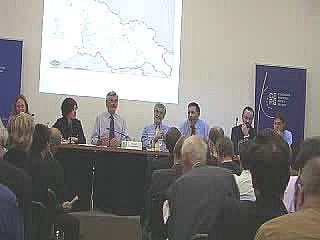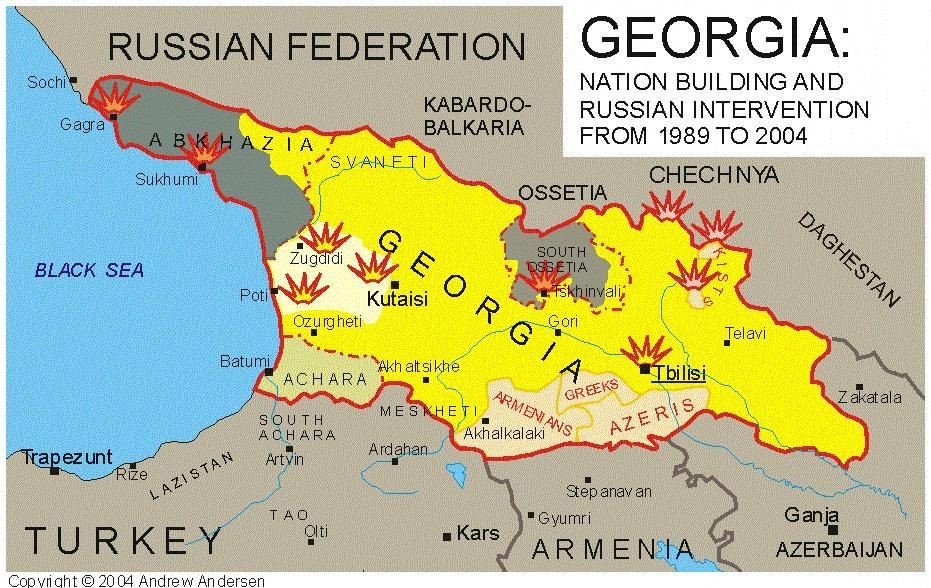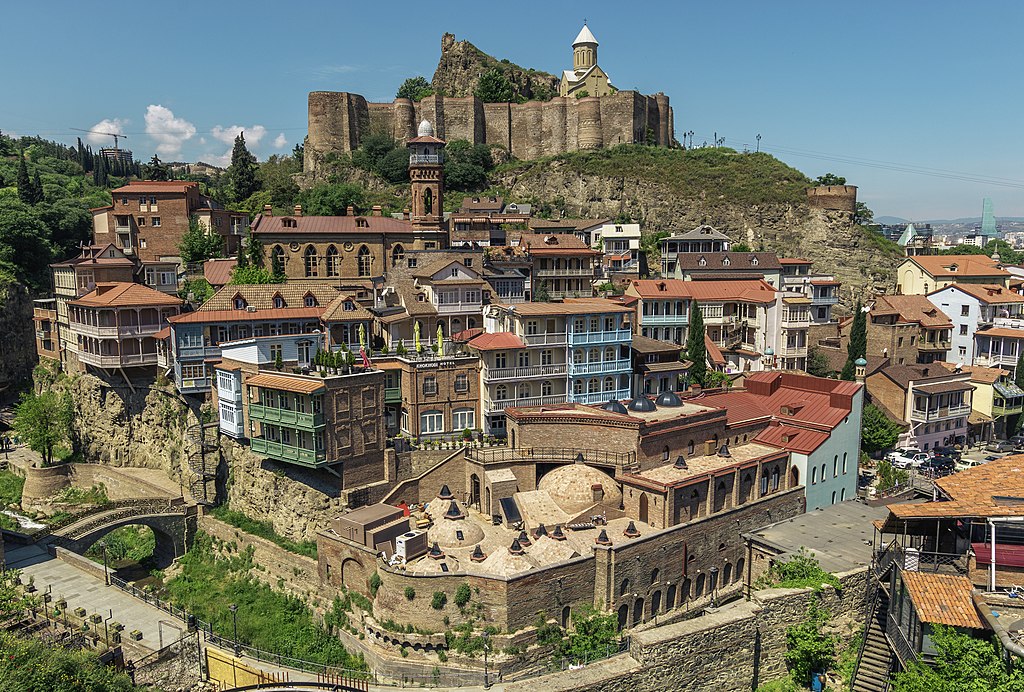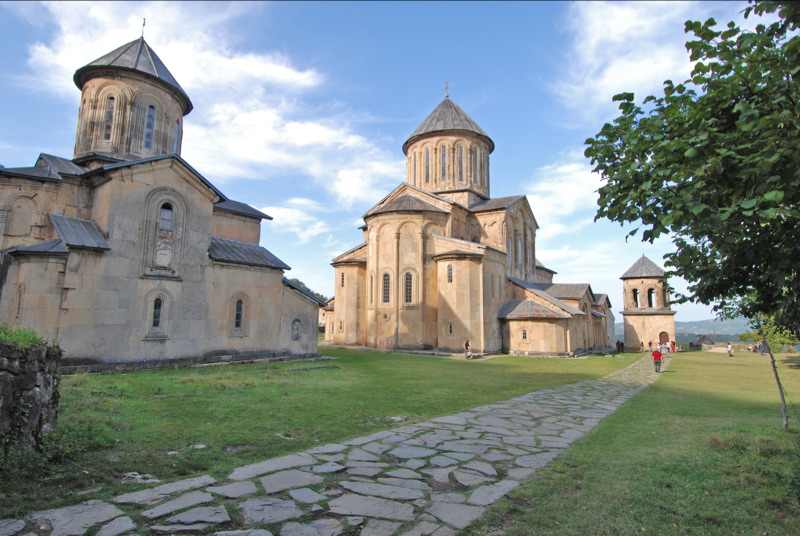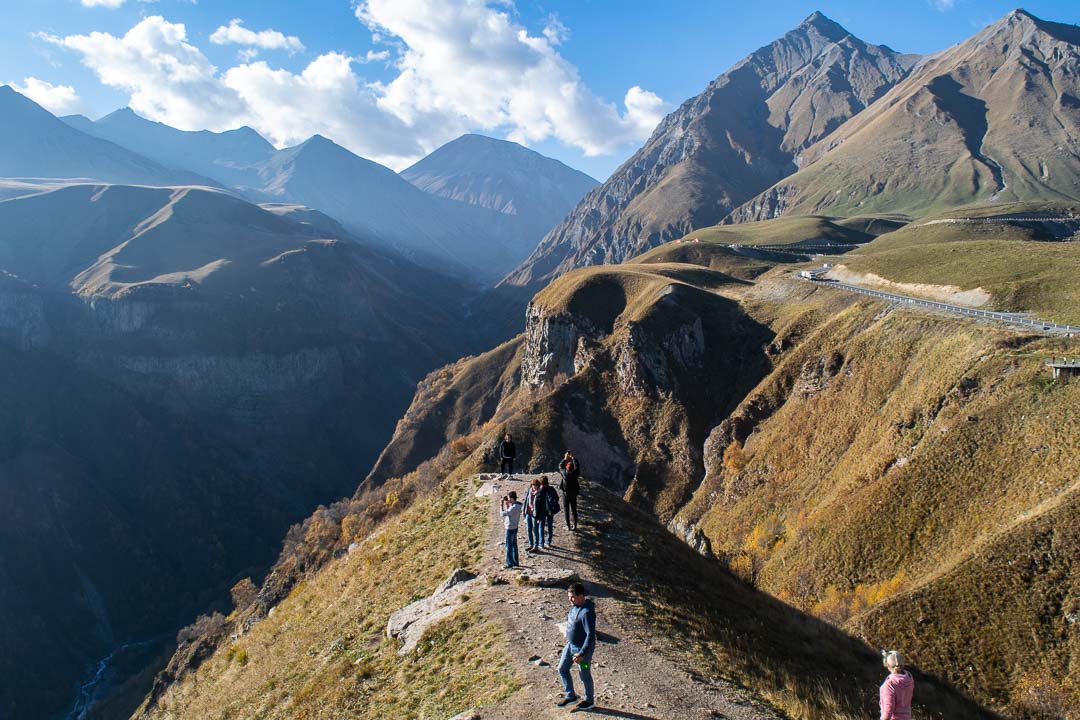| Georgia’s European dream is being carried by the highest spirit of democracy, writes CEPS on 10 Mar 2023:
On International Women’s Day, the face of Georgia was a woman, bravely waving the EU flag against police water cannons. This woman seemed unstoppable and undefeatable in spirit, like the will of all Georgians who have been yet again taking to the streets to fight for their European choice.
A year ago it was street protests which pushed Georgia’s prime minister to apply for EU membership, and it is again the Georgian people, in line with the Georgian Constitution (Article 78), who are demanding that the government does not strip them of a European future.
From poster child to possible pariah
Georgia, once the Eastern Partnership’s darling, has been struggling with democratic reforms over the past few years and an increasing amount of informal governance in the country, as well as the improper conduct of presidential and parliamentary elections since 2018, resulting in heightened political polarisation.
Yet building on its solid track record of implementing its Association Agreement and Deep and Comprehensive Free Trade Area (DCFTA) with the EU, the Georgian Dream-led government still planned to apply for EU membership in 2024 —until Russia’s full-scale invasion of Ukraine changed everything.
In 2022, even after Ukraine applied for EU membership, the prime minister still strongly supported delaying Georgia’s application to 2024, but Georgians took to the streets until he U-turned and formally signed Georgia’s EU membership application. However, the application has been followed by many anti-democratic and anti-European statements and actions by the government, including the politically motivated arrest of journalists.
These actions essentially sabotaged Georgia’s EU membership application and it was denied official candidate status, unlike Moldova and Ukraine – a fact that is still deeply embarrassing for many, many Georgians.
There is no road to Russia for Georgia
Georgia has been handed a long list of priorities to be addressed before it can achieve official candidate status. The government has started to address these priorities by organising parliamentary working groups and amending or passing new legislation.
But like the formal EU membership application, this process has again been sabotaged by the ruling party. To name but a few of its actions, the third democratically-elected President of Georgia, Mikheil Saakashvili, remains in prison without access to proper medical treatment and the government has been busy pushing a Russian-style law on ‘Agents of Foreign Influence.’ The law, if it had passed (it was just dropped during its second reading due to the protests), would have obliged NGOs and media representatives to register as foreign agents if they received at least 20 % of their funding from abroad.
This bill resembled a Russian law adopted in 2012 which led to the gradual rooting out and elimination of many civil society and media organisations. Given the fact that civil society and media representatives are already facing threats from the government, the adoption of this law would have curtailed basic freedoms, thus also threatening Georgia’s European future and EU aspirations. If adopted, it could have had serious repercussions on EU-Georgia relations, as had been stated by Josep Borrell, the EU’s High Representative for Foreign and Security Policy.
For Georgians this would have been simply unacceptable. For them there is no alternative to Georgia’s European future – it is their choice and they are standing firm. Russia, including Russia’s 2008 invasion of Georgia, remains a factor here, and its economic sanctions and coercive measures have only strengthened Georgians’ belief that for them there is only one future, a European future.
This is a belief that brought thousands of people onto the streets. And it was their determined unity under the EU flag, facing the police’s water cannons, pepper spray and tear gas, that forced the government to change course and immediately drop the bill during the second reading.
Make no mistake about it, this is a big win for the Georgian people and rekindles the hope that Georgia will not be lost to Russia, Russian-style laws, and a Russian-backed oligarch who has been the de facto ringleader of all this political backsliding.
The Georgian people will prevail
For Georgian Dream, it has always been about having and keeping power. This is why it did not shy away from breaking the hard-won Charles Michel Agreement and from rejecting the EU’s macro-financial assistance.
But it has always been afraid of the true threat to their power – the people.
This is why their actions have been both confusing and two-faced, on the one hand pleasing a Russia-backed oligarch by slowly – but systematically – moving Georgia away from its democratic path, and on the other hand, continuing to reiterate their commitment to Georgia’s European integration.
Attempting to walk a fine line between the two, Georgian Dream has been regularly testing boundaries. This law was yet another test of public tolerance over their efforts to steer Georgia towards Russia.
Luckily, they’ve failed. Again.
They failed in 2019 when street protests led to the resignation of the Speaker of the Georgian Parliament, after he allowed Russian MP Sergei Gavrilov to take his seat in the Georgian Parliament. They failed last year when the prime minister changed his mind and signed off on the application for EU membership after seeing large-scale protests unfolding in the streets of Tbilisi. And they failed in every attempt to deter Georgians from uniting with the Ukrainians in their fight against Russia, on the frontline and at home.
As President Zelensky noted already a year ago: ‘There are times when citizens are not the government, but better than the government.’ Today, this is clearly the case with Georgia. The Georgian people have also now convinced President Macron that Georgia belongs as part of the EU, while several months ago he stated that Georgia was in a ‘different place geopolitically’.
Georgia may lack strong democratic institutions but the will of the people has prevailed repeatedly in the highest spirit of democracy and European values.
People like the woman mentioned at the very beginning of this commentary, who stood bravely in front of the water cannons and police intimidation, are proudly waving the EU flag as a reminder that Georgia’s European future does not belong to the government or any political party. It belongs to the Georgian people – and no one can ever take that away from them. |
